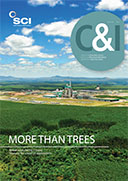The global pharmaceutical industry is at a critical point, as Magid Abou-Gharbia, director of Temple University’s Moulder Center for Drug Discovery Research, told delegates at CPhI/Informex, held in Philadelphia, US, in April 2017 (see p30).
On the one hand, he believes the industry is struggling to stay in business, facing increasing R&D costs and regulatory pressures while on the other, it is trying to deliver drugs that tackle the key diseases that remain incurable or have become resistant to the treatments that are already available.
But the situation is more complicated as the element of trust that the pharmaceutical industry has previously enjoyed appears to be disappearing – not just among the public but also among the medical profession.
A report earlier in 2017 from the UK Academy of Medical Sciences recorded a major distrust of the results of clinical trials with over two thirds (63%) of the general public saying they do not trust evidence from medical research. For general practitioners (GPs), 82% believe that clinical trials funded by the pharmaceutical industry are often biased to give a positive result.
Both groups do believe that the publications of clinical trials in peer reviewed journals ensure that evidence is of a high quality; for example, 79% of GPs and 69% of the public.
The surveys used to produce the report also revealed that 46% of the British public believes that healthcare professionals provide the most trustworthy assessment of medical evidence, followed by academics or researchers (19%), while the national media was trusted by just 3%. It should be noted, however, that almost half of UK adults agree that they would not know how to interpret specific reports on clinical trials of the medicine they were being prescribed, and 25% would not feel confident looking for additional evidence beyond the information given by the GP.
GPs on the other hand, are more trusting of government evidence than the public, 40% compared with just 12%, however, the report does highlight that GPs may have reservations about the quality of the evidence produced by NICE and the MHRA.
It would appear that, as Abou-Gharbia pointed out, drug research and clinical trial are key areas of societal concern and action needs to be taken to restore the trust that once existed. This could involve a separation of basic research and clinical trials with research being carried out in specialised centres partnered by the pharmaceutical industry, which would then concentrate on commercialising resulting discoveries.
But for the UK, there are added issues that need to be resolved, for example the relocation of the European Medicines Agency, along with the European Baking Agency, will have to relocate from London to an EU state on the UK’s departure from the EU.
At an EU summit at the end of June 2017, it was agreed that a final decision will be made before the end of 2017 and a number of member states have submitted their bids.
Spain is one such bidder, and as Spanish minister for health, Dolors Montserrat commented: ‘It’s very positive that we now have an agreed process with strict criteria to choose the EMA’s new home. It’s clear that a smooth and risk-free relocation is at the very top of the EU’s priorities as it considers the move from London. No one wants the work of this vital agency to come to a standstill or to be put at risk.
‘Spain is already working extremely hard to produce its formal application, which will demonstrate to our EU colleagues the benefits to Europe of Barcelona hosting the EMA. Barcelona is ready for the EMA now: we have the keys to a great building and the expertise to ensure the agency’s continued success.’
Other potential bidders include Amsterdam, Copenhagen, Lille, Stockholm as well as Vienna, Dublin and Warsaw. The European Commission will evaluate their submissions in September considering criteria including accessibility for existing employees and work opportunities for their partners as well as whether the country concerned already hosts other EU agencies. This will be followed by a political discussion of the bids in October, with a secret ballot in November.
Another significant issue is the UK’s membership of the EU Unitary Patent Court (UPC)system, which is designed to allow all signatories to recognise a single patent without having to apply for a patent in each individual country. This is something that the UK has been pushing for since before the Brexit referendum although the recent general election has delayed the ratification process, which had been expected to be completed before the end of 2017. Both the British Chambers of Commerce and its EU equivalent, Eurochambres, are eager for the UK to sign up.
It would appear that the pharmaceutical industry, particularly in the UK, is facing a number of key challenges, all of which could have a major impact on its future. Of all the challenges, however, the restoration of trust is possibly the most far-reaching as ultimately it affects the industry’s so-called ‘licence to operate’.





